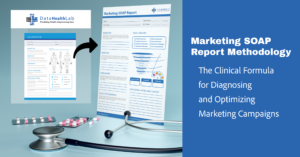Healthcare marketers, do you know M3D Methodology? Movember Campaign M3D Applied.
The M3D Methodology, developed by Marco Alves, is an advanced framework tailored for healthcare advertising. The approach is designed to map three key dimensions: Medical Intent, Medical Sentiment, and Medical Urgency, each playing a pivotal role in crafting highly effective, data-driven digital campaigns. The methodology helps advertisers better understand online health searches, allowing them to deliver the right content at the right time, ultimately leading to more successful patient acquisition and engagement.
Movember Prostate Cancer Awareness Campaign: M3D Methodology for Proactive Health Engagement
This Movember, with the M3D Methodology, let’s drive deeper connections by aligning our messages with the specific motivations, emotions, and urgency levels of our audience.
About the Campaign (ILLUSTRATIVE CAMPAIGN)
Prostate cancer is a significant health concern, especially for men over 40. Early detection can be life-changing, and this illustrative campaign is designed to guide men through every step—from initial awareness to scheduling preventive screenings. By addressing the risks, symptoms, and treatment options available, we aim to make proactive healthcare a priority.
Patient Journey
- Awareness Stage: Men become aware of potential prostate cancer symptoms, such as urinary difficulties or pain in the lower back. This stage is crucial for highlighting the importance of early detection and regular screenings through engaging content.
- Research and Consideration Stage: Individuals search for more information on symptoms, risk factors, and potential treatment options. This stage involves educating them about different treatments like surgery, radiation therapy, and hormone therapy, while providing resources that simplify complex medical information.
- Evaluation of Urgency: Based on their symptoms and family history, men assess the urgency of their situation. For those with a family history, the urgency of screening is higher, making it essential to offer easy access to medical consultation.
- Decision to Schedule: At this stage, men decide to book appointments for screenings. Campaigns should emphasize the convenience of online scheduling and the availability of trusted specialists to encourage this step.
- Follow-Up and Support: After consultations, men may need to follow up with treatments or lifestyle adjustments. Providing ongoing support through targeted content can ensure continued engagement and adherence to medical advice).
What Triggers Searches
Several triggers lead men to search for information on prostate cancer:
- Symptoms: Persistent lower back pain, difficulty urinating, or blood in urine prompt searches about prostate cancer risks.
- Diagnosis: A recent diagnosis can lead to further research on treatment options and potential side effects.
- Preventive Health: Men over 40 often seek information on screening guidelines like PSA testing to ensure early detection.
- Seeking a Second Opinion: Many seek additional perspectives on managing their condition, especially if they feel uncertain about a previous recommendation.
Persona 1 – John
Meet John, a construction manager in Chicago with a family history of prostate cancer. Married with two young children, John is health-conscious but struggles to balance his time between work and family commitments. Our campaign focuses on reaching men like John by understanding his intentions, sentiments, and urgency levels.
Persona: John – Prostate Cancer Prevention Seeker
Age: 45
Occupation: Construction Manager
Location: Chicago, IL
Family Status: Married with two young children
Background Information:
- John is in his mid-40s, working as a Construction Manager in Chicago.
- His family has a history of prostate cancer, prompting him to seek preventive healthcare services.
- Due to his demanding work and family commitments, John struggles to prioritize his personal health.
- He values convenient access to healthcare screenings and consultations due to time constraints.
Interests and Goals:
- Balancing work and family commitments is a challenge for John, making it difficult to prioritize proactive health measures.
- His main goal is to stay healthy and prevent any potential health issues, especially given his family history of prostate cancer.
Information Sources:
- John prefers trusted medical professionals for health information and screenings.
- He relies on reputable healthcare organizations for credible information on preventive screenings and services.
- Common search terms for John may include “prostate cancer screening near me” or “prostate cancer prevention tips.”
M3D Methodology: Intentions, Sentiments, and Urgency
1. Medical Intentions
- Prevention: John’s family history drives his focus on preventive healthcare. He searches for terms like “prostate cancer screening” and “prevention tips” to understand how to lower his risk.
- Health Provider Access: John values convenience in accessing specialists. He needs healthcare that fits his busy schedule, prompting searches for local screening options and urology experts.
- Second Opinion: With the potential risk in mind, John is open to seeking second opinions on screening results or preventive options, ensuring he’s making the most informed decisions.
- Health and Wellness: John also looks for ways to manage stress and maintain a healthy lifestyle, incorporating diet and fitness tips that fit into his work-family balance.
2. Medical Sentiments
- Anxiety: John feels a certain level of anxiety due to his family history, worrying about the possible impact on his health and family if he were to develop prostate cancer.
- Hope: He is hopeful that proactive screening can prevent future issues, believing that early detection will protect his health and family stability.
- Determination: Despite his demanding schedule, John is determined to prioritize his health, demonstrating resilience in seeking solutions that work with his lifestyle.
- Trust: John values content that reassures him with credible, expert-backed information. This trust is critical for his decision to engage with healthcare providers.
3. Medical Urgency
- Preventive Care: John feels an ongoing urgency to monitor his health proactively. With a family history, the motivation to seek early screenings is high, and he values clear guidance on when and where to act.
- Immediate Care Options: In the event of symptoms or concerns, John would seek nearby urgent care options for a quick consultation, preferring immediate responses to address any anxiety-inducing symptoms.
- Second Opinion: If initial results raise questions, he may urgently pursue a second opinion, underscoring his proactive stance on health decisions and his need for reassurance.
How M3D Shapes Campaign Strategy
Using the M3D Methodology, our campaign addresses John’s unique profile by crafting tailored messages that resonate with his motivations, concerns, and sense of urgency:
- Intent-Driven Content: Ads emphasize the importance of preventive measures, speak directly to those with a family history, and guide him to accessible, trusted healthcare providers.
- Sentiment-Aware Engagement: Content reassures John by addressing his anxieties and reinforcing hope in early detection. This emotional resonance helps him feel more supported and confident in the healthcare options available.
- Urgency-Sensitive Timing: Ads and information are timed to peak engagement hours for his demographic, ensuring we reach John when he’s likely to act, such as during his off-work hours or on weekends.
How M3D Helps in Campaign Creation
The M3D Methodology allows for a targeted approach, enabling campaign messages to align with the specific needs and behaviors of personas like John:
- Personalized Messaging: By understanding John’s prevention intent and the urgency he feels due to his family history, the campaign can emphasize the ease of access to nearby screenings and early detection methods.
- Sentiment Analysis: Addressing John’s anxiety with reassuring content about early detection and the benefits of screenings can build trust and engagement with the campaign.
- Ad Placement and Timing: Using urgency data, ads can be strategically placed during peak times when John is most likely to search for health information, ensuring the message reaches him when he’s ready to take action.
M3D Headlines to Inpire – Persona 1 – John
1. Get Screened Early: Prostate Cancer Prevention
2. Convenient Consultations: Expert Prostate Care
3. Fit Health into Busy Life: Prostate Wellness
4. Stay Informed: Latest in Prostate Cancer Research
5. New Screening Options: Prostate Health Insights
6. Expert Opinions: Prostate Cancer Risk Insights
7. Personalized Care: Tailored Prostate Health Plans
8. Proactive Support: Comprehensive Prostate Care Solutions
M3D Descriptions to Inpire – Persona 1 – John
1. Prevention Intention:
- Stay ahead of risks: Proactive screenings for peace of mind.
- Empower your health: Knowledge for prevention is key.
2. Healthcare Provider Intention:
- Expert guidance awaits: Specialist consultations made easy.
- Trust in care: Access top-tier professionals with ease.
3. Health and Wellness Intention:
- Balance is key: Wellness tips for a thriving life.
- Health hacks for you: Fit in wellness amid the bustle.
4. Medical Research Intention:
- Latest insights here: Stay informed on cancer advancements.
- Knowledge empowers: Research for informed healthcare choices.
5. Second Opinion Intention:
- Double-check for peace: Second opinion brings clarity.
- Confidence in decisions: Validate choices with a second view.
In closing, the Movember Prostate Cancer Awareness Campaign demonstrates how a thoughtful, data-driven approach like the M3D Methodology can meaningfully connect with men over 40, encouraging proactive health decisions and emphasizing the importance of early screening. By aligning strategies with patient intentions, sentiments, and urgency, we create a more personalized and impactful journey that supports men in taking control of their health.
If you’re interested in learning more about how the M3D Methodology can enhance your healthcare campaigns, feel free to reach out directly. ([email protected])





